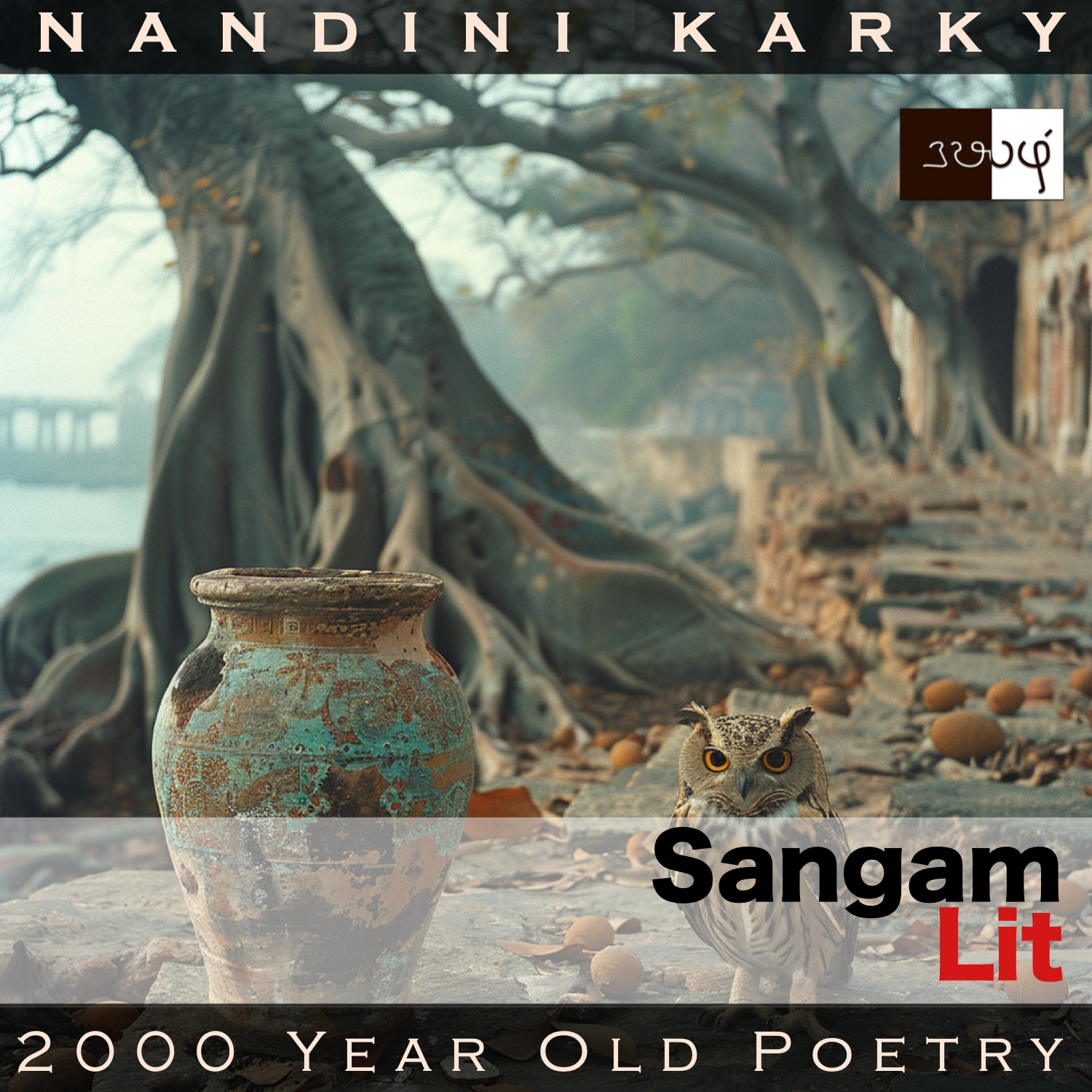Podcast: Play in new window | Download
Subscribe: Apple Podcasts | Spotify | Amazon Music | Android | iHeartRadio | Email | TuneIn | RSS | More
In this episode, we perceive the importance accorded to generosity, as depicted in Sangam Literary work, Puranaanooru 364, penned by the poet Kookai Kozhiyaar. The verse is situated in the category of ‘Pothuviyal Thinai’ or ‘Common Themes’ and talks about all that a king must do before the end arrives.

வாடா மாலை பாடினி அணிய,
பாணன் சென்னிக் கேணி பூவா
எரி மருள் தாமரைப் பெரு மலர் தயங்க,
மை விடை இரும் போத்துச் செந் தீச் சேர்த்தி,
காயம் கனிந்த கண் அகன் கொழுங் குறை
நறவு உண் செவ் வாய் நாத் திறம் பெயர்ப்ப,
உண்டும், தின்றும், இரப்போர்க்கு ஈய்ந்தும்,
மகிழ்கம் வம்மோ, மறப் போரோயே!
அரியஆகலும் உரிய, பெரும!
நிலம் பக வீழ்ந்த அலங்கல் பல் வேர்
முது மரப் பொத்தின் கதுமென இயம்பும்
கூகைக் கோழி ஆனாத்
தாழிய பெருங் காடு எய்திய ஞான்றே.
How to be before death arrives seems to be the crux of this verse. The poet’s words can be translated as follows:
“Let the female singer wear an unfading garland and let the bard adorn his head with a flaming bright, huge flower of the lotus that blooms not in a pond! Slaughtering a huge male goat and roasting it in the red flames, and then taking those chunky, fatty pieces of meat soaked in spices, offering to red mouths that have fed on toddy for the tongues to toss and turn it all around, let us chew and eat and render unto those who come seeking. Let us find joy this way, O brave warrior! For wouldn’t it become rare, O lord, to do all this after reaching in an urn, the huge forest, where from the hollow of the ancient tree with many roots falling to the ground, there shouts the owl ceaselessly!”
Let’s explore the details here. The poet asks the king to ensure that the female singer wears garlands that fade not, implying garlands of gold. Similarly, the fate of bards should be to wear lotus flowers on their heads, not the ones that bloom in a pond, again referring to the coveted prize of bards – golden lotuses. In essence, the poet is asking the king to be generous with these artists not only with such wealthy rewards but also by offering them rich pieces of cooked goat meat for their tongues, already reddened by toddy. Inviting the king saying let us all eat and be happy in this manner, the poet concludes by reminding him it’s not going to be possible to do such things when he ends up in a burial urn in the forest with a huge banyan, where an owl shouts ceaselessly from.
Death is possible any time and before it knocks you out, do all the things that give joy to others and to you, seems to be the advice of this poet. Thinking back to all the past ‘Puranaanooru’ verses, we have seen these kings and leaders in various situations but somehow in most of these instances, one thing seems to be constant, and that is some reference to their generosity- their giving away of gifts and food to artisans and supplicants. In these last few songs especially, with the focus on death, the thought of generosity has been tied together with the meaning of their life and as a source of salvation for their afterlife. Would this poet advise the female singer or the bard to give away everything during their last hours too or was this duty of generosity meant only for kings? It’s interesting to ponder upon how ethics and morality varied with the different classes of society then!




Share your thoughts...